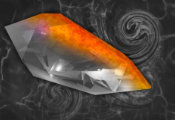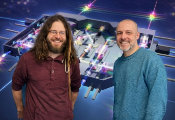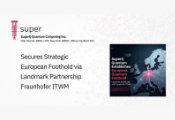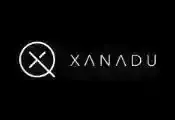Two QuTech Scientists Awarded ERC Starting Grants to Advance Quantum Technologies
September 04, 2025 -- Nadia Haider and Carlos Errando Herranz, both principal investigators at QuTech, have received ERC Starting Grants to develop radically new approaches to qubit discovery and stability. Their projects tackle some of the field’s most pressing challenges: how to accelerate the search for novel qubits, and how to make them robust enough for large-scale applications.
Towards Noise-Resilient Quantum Processors
Nadia Haider, Group Leader at QuTech and Assistant Professor in the Department of Microelectronics at TU Delft’s Faculty of EEMCS, is pushing the boundaries of what’s possible with superconducting qubits—one of the most promising platforms for quantum computation. With her project MCOPI, she will tackle one of their greatest obstacles: sensitivity to environmental noise.
At the heart of her approach is the 0-π qubit, a design that offers intrinsic protection against decoherence. Although early prototypes have shown potential, a fully protected “hard” 0-π qubit has yet to be realized. To bridge this gap, Haider’s research will probe the underlying decoherence mechanisms, refine qubit designs for greater stability, and develop advanced packaging and interconnect technologies that enable seamless linking of qubits across chips.
Her vision is to establish a noise-resilient platform that could form the basis of scalable quantum processors. “Quantum technology has the potential to revolutionize computing, communication, and sensing,” Haider says. “With this project, I aim to develop qubits that are inherently robust, paving the way toward practical large-scale quantum computers.”
Accelerating Qubit Discovery with Colour Centres
Carlos Errando Herranz’s ERC Starting Grant funds his project DISQOVER, focused on advancing colour centre discovery. Colour centres, atomic-scale defects in crystals, combine long spin coherence times, photonic connectivity, and solid-state scalability, making them highly promising candidates for quantum information processing. However, assessing new centres requires years of multidisciplinary measurements, and the search space of possible colour centres is vast. As a result, only a small set of colour centres has been studied, each with trade-offs in performance.
Errando Herranz, who is also an Assistant Professor at EEMCS’s Quantum Circuits, Architectures and Technology group, aims to change this. By developing an on-chip exploration platform, his team will automate the process of discovering and characterizing new qubits. This approach will allow researchers to explore the enormous search space of atomic defects much more rapidly than before. The project lays the groundwork for application-specific qubits tailored to tasks such as error correction in quantum communication and computing, sensing, transduction, or even lasing.
Bold Ideas with Lasting Impact
The ERC Starting Grant is one of Europe’s most competitive research awards, supporting talented early-career scientists in pursuing high-risk, high-gain projects. Each grant provides up to €1.5 million over five years, enabling researchers to build their teams and develop ambitious ideas that may redefine their fields.
For QuTech and TU Delft, the success of Errando Herranz and Haider underscores the institute’s mission: to pioneer scalable prototypes for quantum computing and quantum networking, ensuring an open future for both technologies.




































